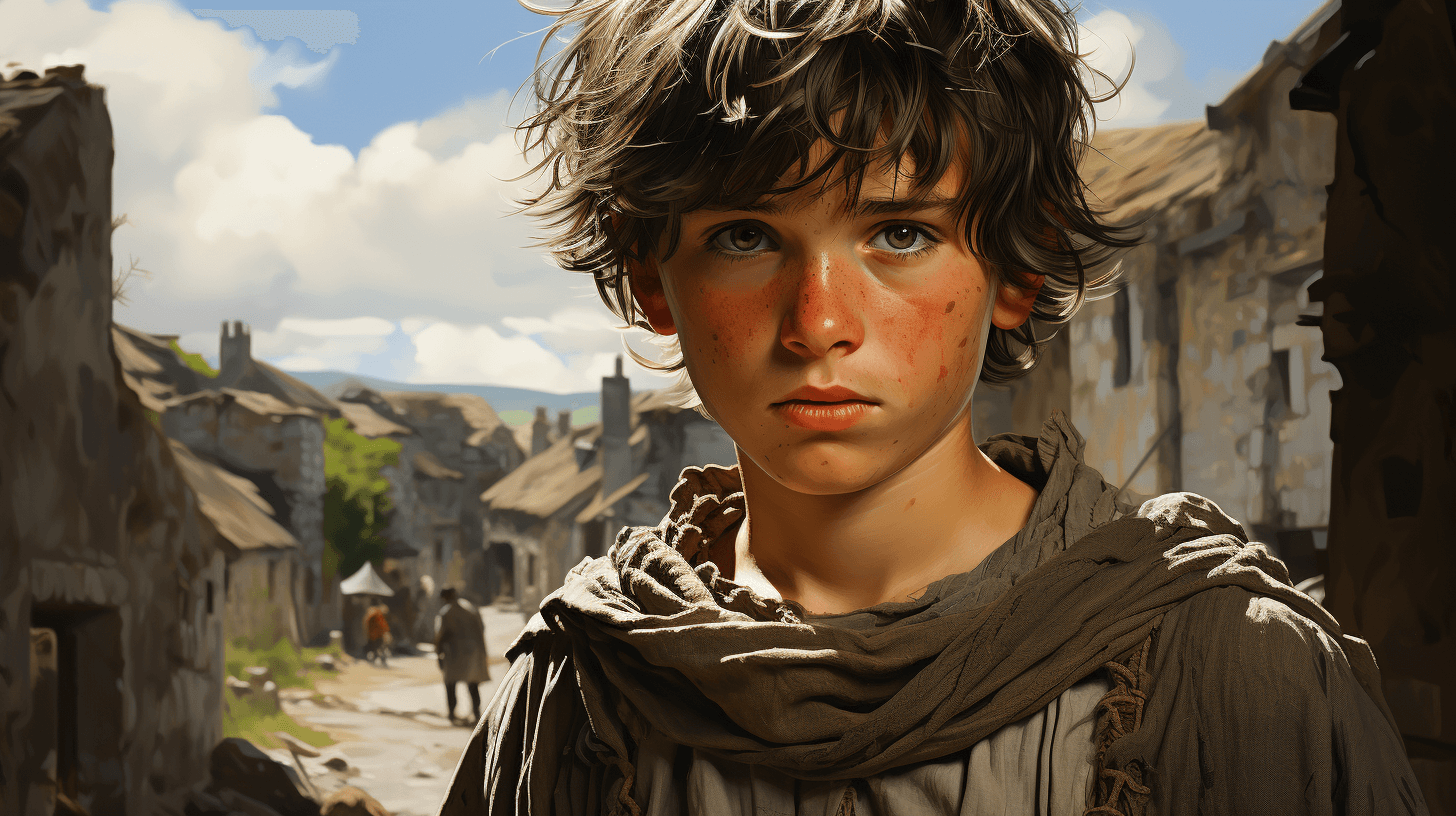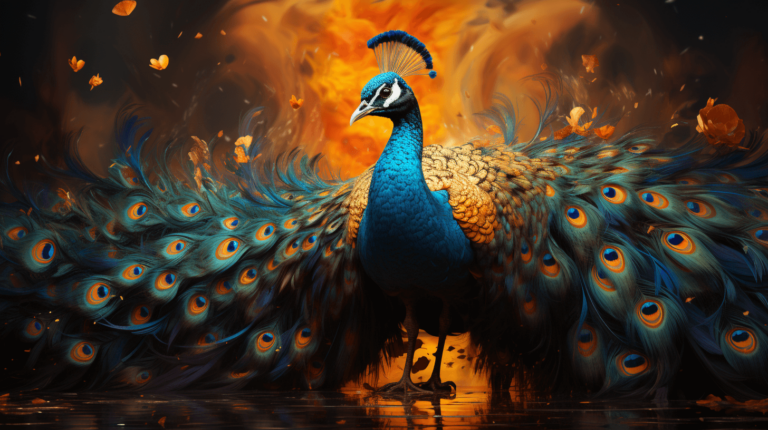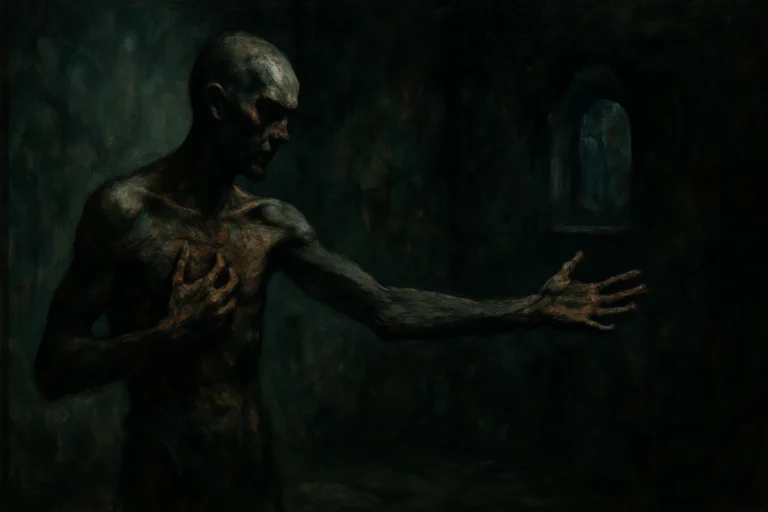Myth of Gwion Bach
Gwion Bach, also known as Taliesin, is a character from Welsh mythology who features prominently in the tale known as the “Mabinogion,” a collection of pre-Christian Celtic myths.
Here’s His Story
In the tale, Ceridwen, a powerful enchantress, was the wife of Tegid Foel, and they had two children: a beautiful daughter named Creirwy and an extremely ugly son named Morfran (also known as Afagddu). Ceridwen decided to brew a potion that would grant wisdom and inspiration (known as “Awen”) to her son, to compensate for his lack of physical appeal. This potion had to be boiled for a year and a day, so Ceridwen hired a blind man named Morda to tend the fire, and a young boy named Gwion Bach to stir the cauldron.
On the final day of brewing, just as the potion was completed, three drops splashed out of the cauldron and landed on Gwion’s thumb. The drops were incredibly hot, so he instinctively put his thumb in his mouth to soothe the burn. Instantly, he gained the wisdom and knowledge that the potion was intended to bestow. The rest of the potion was poisonous, and it shattered the cauldron, poisoning Morda.
Realizing what had happened, Gwion fled, with an enraged Ceridwen in pursuit. Utilizing the wisdom he’d gained, he used magic to turn himself into various animals to evade her – a hare, a fish, and a bird – but each time, Ceridwen changed herself to match – a greyhound, an otter, and a hawk.
Finally, in desperation, Gwion turned himself into a grain of wheat, hiding on a threshing floor. Ceridwen, in turn, transformed into a hen and pecked up all the grains, swallowing Gwion. This did not kill him, however; instead, he grew within her and was eventually reborn from her. She couldn’t bring herself to kill him, so she placed him in a leather bag and cast him into the sea.
The bag was found by Elffin ap Gwyddno, a prince, who was amazed by the baby’s radiant forehead and beautiful singing. He named the child Taliesin, which means “radiant brow” in Welsh, and raised him as his own. Taliesin would go on to become the greatest of all the Welsh bards, revered for his wisdom and magical abilities.
Like many myths and folktales, the story of Gwion Bach, or Taliesin, is rich in symbolic elements and potential interpretations. Here are some possible symbolic aspects and lessons that can be drawn from the story:
Transformation and Adaptation:
The chase between Gwion Bach and Ceridwen, during which they continually transform into different animals, can symbolize the constant changes and challenges we face in life. It also emphasizes the importance of adaptability and resourcefulness in navigating difficult situations.
Wisdom and Its Consequences:
The myth shows that acquiring wisdom can have unexpected consequences. Gwion Bach, by accidentally tasting the potion, gains immense wisdom but also incurs Ceridwen’s wrath. This might be seen as a cautionary message about the dangers of obtaining or seeking wisdom inappropriately or without being prepared for the responsibility it brings.
Cycle of Death and Rebirth:
The cycle of death and rebirth is a common theme in many mythologies, often symbolizing renewal, transformation, or the cyclical nature of life. In the story, Gwion Bach’s rebirth from Ceridwen signifies his transformation into a new state of being, Taliesin, the great bard.
The Power of Fate or Destiny:
Despite Ceridwen’s best efforts to bestow the gift of wisdom on her son, it is Gwion Bach who ends up receiving it. This could be seen as suggesting the power of fate or destiny, and the idea that one can’t always control who is destined for greatness.
The Dual Nature of Knowledge:
The potion Ceridwen brews is both a source of infinite wisdom and a deadly poison, showing the dual nature of knowledge. This could symbolize that knowledge and wisdom, while powerful, can be dangerous if used improperly or fall into the wrong hands.
As with any myth or story, the interpretations can vary greatly depending on cultural, historical, or personal perspectives. These are just a few ways that one might interpret the symbolism and lessons in the story of Gwion Bach.
Gwion Bach, a boy once plain,
Stirred a brew of wisdom’s gain.
Splashed by drops, he took to flight,
In Ceridwen’s wrath, he hid from sight.
From hare to fish, then bird to grain,
In magic’s cloak, he sought to feign.
Ceridwen, fierce, took up the chase,
In beastly forms, she matched his pace.
Swallowed whole, yet born anew,
Wisdom’s son, his life’s debut.
From humble Gwion’s transformative fun,
Rose Taliesin, the radiant one.







